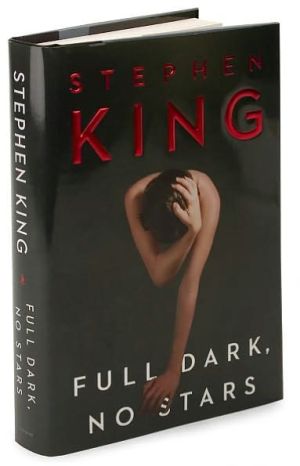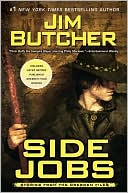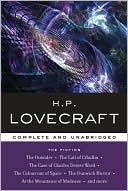Wilderness Tips
In each of these tales Margaret Atwood deftly illuminates the single instant that shapes a whole life: in a few brief pages we watch as characters progress from the vulnerabilities of adolescence through the passions of youth into the precarious complexities of middle age. By superimposing the past on the present, Atwood paints interior landscapes shaped by time, regret, and life's lost chances, endowing even the banal with a sense of mystery. Richly layered and...
Search in google:
In each of these tales Margaret Atwood deftly illuminates the single instant that shapes a whole life: in a few brief pages we watch as characters progress from the vulnerabilities of adolescence through the passions of youth into the precarious complexities of middle age. By superimposing the past on the present, Atwood paints interior landscapes shaped by time, regret, and life's lost chances, endowing even the banal with a sense of mystery. Richly layered and disturbing, poignant at times and scathingly witty at others, the stories in Wilderness Tips take us into the strange and secret places of the heart and inform the familiar world in which we live with truths that cut to the bone.Publishers WeeklySet mainly in Toronto or in the Canadian woods, the 10 beautifully controlled tales in Atwood's new collection testify to the unpredictability of life, its missed connections, unsolvable mysteries and the lightning passage of time. Most of them are refracted through the sensibilities and memories of female protagonists, who reflect on the moment when they realized that ``nothing has turned out'' as they expected. Past and present coalesce seamlessly in these stories; Atwood is particularly good at capturing the feelings of adolescence and the exact details that typify the culture of the decades from the '50s to the '90s. Events are seen at a distance, related in emotionally muted but acutely revealing prose. The hard-edged tone of ``Hairball'' perfectly conjures up the ruthless, manipulative protagonist who suddenly realizes that she has been bested by her obnoxious protege. Susanna, in ``Uncles,'' has a similar comeuppance, as she, the consummate trickster who ``can fake anything'' is betrayed by her mentor. In both ``The Bog Man'' (the least successful tale, as here Atwood uncharacteristically veers toward melodrama) and ``The Age of Lead'' a body uncovered long after death serves as a metaphor for buried desires, opportunities and hopes. In the title story, Atwood observes the interrelationships among three sisters and the randy foreigner who has married one of them and made love to the other two. Atwood's (Cat' s Eye) uncompromising eye is enhanced by her sinewy, taut prose.
\ Publishers Weekly\ - Publisher's Weekly\ Set mainly in Toronto or in the Canadian woods, the 10 beautifully controlled tales in Atwood's new collection testify to the unpredictability of life, its missed connections, unsolvable mysteries and the lightning passage of time. Most of them are refracted through the sensibilities and memories of female protagonists, who reflect on the moment when they realized that ``nothing has turned out'' as they expected. Past and present coalesce seamlessly in these stories; Atwood is particularly good at capturing the feelings of adolescence and the exact details that typify the culture of the decades from the '50s to the '90s. Events are seen at a distance, related in emotionally muted but acutely revealing prose. The hard-edged tone of ``Hairball'' perfectly conjures up the ruthless, manipulative protagonist who suddenly realizes that she has been bested by her obnoxious protege. Susanna, in ``Uncles,'' has a similar comeuppance, as she, the consummate trickster who ``can fake anything'' is betrayed by her mentor. In both ``The Bog Man'' (the least successful tale, as here Atwood uncharacteristically veers toward melodrama) and ``The Age of Lead'' a body uncovered long after death serves as a metaphor for buried desires, opportunities and hopes. In the title story, Atwood observes the interrelationships among three sisters and the randy foreigner who has married one of them and made love to the other two. Atwood's (Cat' s Eye) uncompromising eye is enhanced by her sinewy, taut prose.\ \ \ \ \ Library JournalIn this newest collection of ten short stories, Atwood looks back over three decades that have wrought great changes in women's lives. The impacts of death, disease, deception, and disappointment are explored; Atwood's characters, with their tenuous personal relationships, always endure a terrible aloneness. The loss of trust in others is a recurring theme. In one story a betrayed woman plays a grisly practical joke on her married lover; in another, a man settles for second choice in love and work and lives in apathy thereafter. An art collector's priceless landscapes only serve to remind her of a tragedy in her adolescence. Atwood's stories are unsettling but unforgettable. Recommended for public libraries.\ \ \ Library JournalIn this newest collection of ten short stories, Atwood looks back over three decades that have wrought great changes in women's lives. The impacts of death, disease, deception, and disappointment are explored; Atwood's characters, with their tenuous personal relationships, always endure a terrible aloneness. The loss of trust in others is a recurring theme. In one story a betrayed woman plays a grisly practical joke on her married lover; in another, a man settles for second choice in love and work and lives in apathy thereafter. An art collector's priceless landscapes only serve to remind her of a tragedy in her adolescence. Atwood's stories are unsettling but unforgettable. Recommended for public libraries.\ \ \ \ \ James WilcoxAlmost every one of the 10 stories in this collection superimposes the past upon the present in an unsettling, often startling manner, which conjures up a sense of the mysterious in even the most banal relationships. . . .Well constructed as these stories are, some. . .belabor their themes with built-in explanations.\ —The New York Times\ \ \ \ \ Kirkus ReviewsAn effective, uniformly controlled collection of ten stories from the author of, most recently, Cat's Eye (1989). Gathered here are pieces previously appearing in top short- story forums—The New Yorker, Granta, Saturday Night, Playboy—providing an excellent sampling of high-proof Atwood. Virtually all the pieces focus on the lives of women equivocally connected to the men around them. In "Wilderness Tips," a middle-aged woman is bluntly confronted with her husband's infidelity. "Hairball," the most disturbing here, involves the dissolution of a woman's affair with a married man; the otherwise naturalistic posture of the story is powerfully undercut by the presence of a removed tumor that the young lady keeps in a jar, eventually sending it, neatly wrapped, to her lover's wife. In "True Trash," a young woman encounters a youth who is still unaware that he had impregnated a camp employee many years earlier. And "Hack Wednesday" revolves around a disgruntled journalist brought, whimsically, to the brink of an affair before she backs off—not from any pangs of conscience but out of lethargic concern for the work involved in carrying it off. Like Alice Munro, Atwood has a talent for serving up the nuances of bourgeois Ontario culture, but with Atwood the ingredients are boiled down into a stronger and much more acerbic brew. The author's trademark smirk behind the economical prose can be wearying over the course of an entire collection, but taken separately, the pieces here are solid evidence of the author in full form. Pure Atwood.\ \








